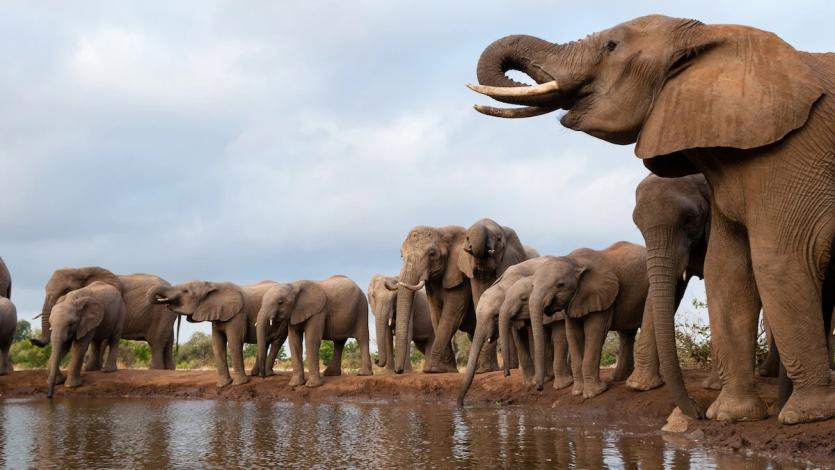Elephants in Botswana. Photo:National Geographic
By Patryk Krych | The World Daily | JUNE 20th 2021
Warnings from experts have stated that tens of thousands of elephants in Africa are now facing a new threat as Botswana and Namibia may become host to the plans to make a new massive oil field in the continent.
Fears have been expressed by both conservationists and campaigners alike that the new proposed oil fields would devastate not only the 130,000 elephants living in Botswana and Namibia, but also the surrounding ecosystems and other species living within it.
The elephants are thought to be under particular threat due to the bout of mysterious deaths that had struck them over the last year, now having been thought to be linked to toxic algae brought about by global warming. The irony of a changing climate being the suspected cause of these deaths, and the very issue that perpetuates it being the new potential threat to elephant lives is becoming increasingly prevalent among conservationists.
The plans, initiated by ReconAfrica, an oil & natural gas company based in Canada, threaten not only the local ecosystems and wildlife, but may also end up posing a severe threat to local communities who often rely on their environments.
“It is incomprehensible that ReconAfrica’s hunt for fossil fuels is going ahead,” said Rosemary Alles from Global March for Rhinos and Elephants (GMFER). “Fewer than 450,000 elephants survive in Africa, down from millions not so long ago: 130,000 of these have established this region as a home range, and ReconAfrica’s misbegotten plans place them at direct risk.”
According to the Namibian government, only exploratory licences had so far been given out to oil companies, but none that allowed the excavation or production of oil. The government added that none of the oil wells found by the exploratory groups were located in any “conservancy or environmentally sensitive area and will have no significant impact on our wildlife.” Campaigners remain sceptical, however.
Scientists in particular have voiced some major criticism to this statement, having noted that the oil excavation plans may pose a major threat to the Okavango Delta n Botswana – a vast inland river that periodically floods and dries, attracting large groups of wildlife to gather and drink from its waters.
The particular concern is for the Okavango Delta’s water supply, which may become jeopardised in the process of any drilling operations. The whole area is considered a World Heritage Site – a landmark area given legal protections by an international convention under the United Nations.






